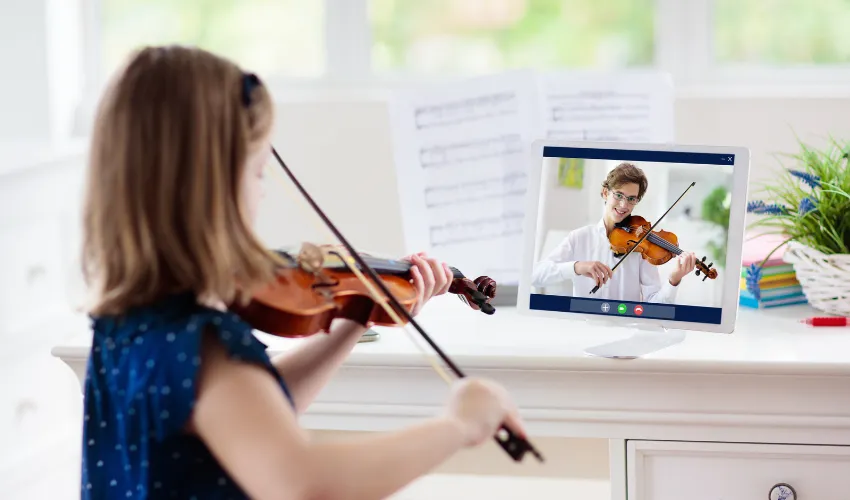
In today’s digital age, the world of music education has undergone a transformative shift, with an increasing number of aspiring violinists turning to the convenience and flexibility of online violin courses and online violin lessons. Embracing the power of technology, these virtual platforms offer a wealth of resources and opportunities for students to hone their skills, explore new techniques, and master the art of the violin from the comfort of their own homes. Let’s delve into the advantages of embarking on a digital journey towards violin mastery through an online course.
Flexibility and Convenience
One of the most significant benefits of opting for an online violin course is the flexibility and convenience it offers to students. With online lessons, students have the freedom to schedule their practice sessions and learning activities at a time that suits their individual preferences and commitments. Whether juggling work, school, or other responsibilities, students can access course materials and instructional videos at their convenience, allowing for a personalised and adaptable learning experience.
Access to Expert Instruction
Online violin courses provide students with access to expert instruction from highly skilled and experienced violin teachers and performers. Through video tutorials, live virtual classes, and interactive exercises, students receive comprehensive guidance and feedback from instructors who are passionate about nurturing their musical talents and fostering their growth as violinists. This personalised instruction ensures that students receive the support and mentorship they need to progress confidently on their musical journey.
Comprehensive Curriculum
Many online violin courses offer a comprehensive curriculum that covers a wide range of topics and techniques, catering to students of all skill levels, from beginners to advanced players. From fundamental concepts such as posture, bowing technique, and intonation to more advanced topics such as repertoire interpretation, musical expression, and performance skills, online courses provide a structured and systematic approach to violin learning. Additionally, students have the flexibility to revisit lessons and review materials as needed, reinforcing their understanding and mastery of key concepts.
Interactive Learning Tools
Online violin courses often incorporate interactive learning tools and resources that enhance the learning experience and engage students in meaningful ways. From virtual practice rooms and play-along tracks to interactive sheet music and progress tracking features, these tools empower students to practice effectively, monitor their progress, and stay motivated throughout their musical journey. Furthermore, online platforms may offer forums or discussion boards where students can connect with peers, share insights, and seek advice from fellow learners and instructors.
Cost-Effective Learning
Compared to traditional in-person lessons, online violin courses often offer a more cost-effective alternative for students seeking high-quality instruction without breaking the bank. With no additional expenses for travel, accommodation, or studio rental, online learning eliminates many of the financial barriers associated with traditional music education, making it accessible to a broader audience of aspiring musicians. Additionally, some online platforms offer subscription-based models or pay-per-course options, allowing students to tailor their learning experience to suit their budget and preferences.
Global Community and Collaboration
One of the most enriching aspects of online violin courses is the opportunity to connect with a global community of violin enthusiasts and practitioners. Through online forums, social media groups, and virtual events, students can engage with fellow learners from diverse backgrounds, cultures, and musical traditions, fostering a sense of camaraderie and collaboration. Whether participating in virtual ensemble projects, exchanging performance videos, or sharing musical insights, students can draw inspiration and support from their peers, enriching their learning experience and expanding their musical horizons.
In conclusion, online violin courses offer a dynamic and accessible pathway to mastering the art of the violin, combining expert instruction, comprehensive curriculum, interactive learning tools, cost-effective learning, and a global community of learners. Whether embarking on this journey as a beginner or seeking to refine existing skills, students can harness the power of technology to unlock their full potential as violinists and experience the joy and fulfilment of making music in the digital age.
